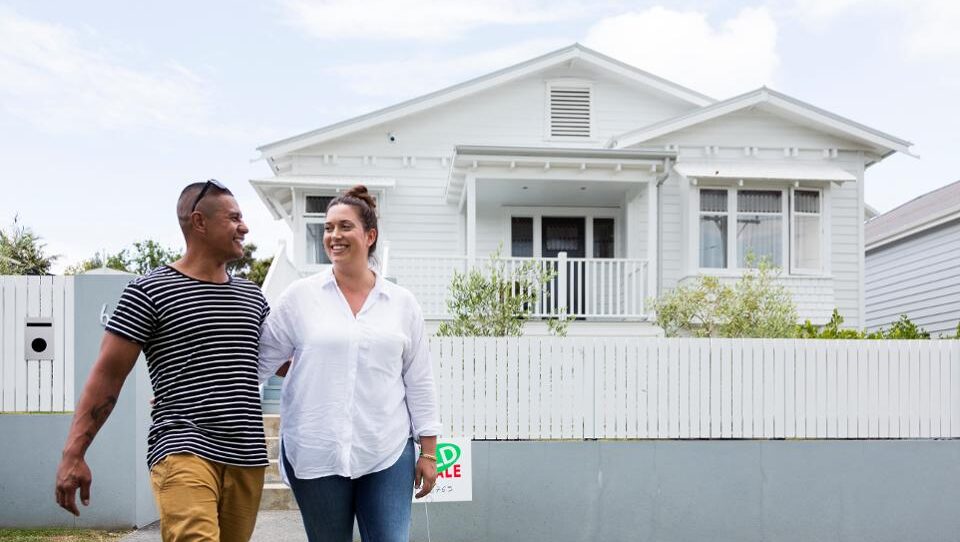Putting up your home with a mortgage for rent is usually allowed. Renting out your home is a great opportunity to form an additional stream of income. However, it is vital to check with your lender before renting out your mortgaged home. While most lenders allow you to rent out your house while under a mortgage, reviewing your borrower’s agreement will ensure that you do it legally and effectively.

What to Consider Before Renting Out Your Mortgaged Home
While forming an additional and lucrative form of income is enticing, it is important to ask yourself, “Can I rent my home under my current mortgage agreement?” Here is what you should consider before renting out your mortgaged house.
Review Your Loan Restrictions
Before you decide if renting your mortgaged house is right for you, you’ll need to check the loan restrictions on the type of loan you have. There are many types of mortgage loans that all come with a different set of rules. Review which loan type you have and if it allows you to rent out your home while in a mortgage agreement.
Your mortgage contract will tell you if there are any restrictions on renting your home. Some contracts require a certain time to pass before you are allowed to rent the property. Your contract will also tell you who to notify if you plan on renting your house and what steps to take if you plan to rent.
Check with your HOA
Depending on the location of the home, you may be a member of a Homeowners association or HOA. HOAs often have their own rules and regulations when it comes to renting property. If you are a member of an HOA, check the rules and make sure you are allowed to rent the property. If you are allowed to rent, the HOA rules and regulations will also need to be followed by future tenants.
Review Local Landlord Laws
The location of your property can greatly affect your ability to rent your mortgaged house. Before you decide to rent, it is important to check your city and state landlord laws. Your local and state landlord laws will tell you the guidelines for renting your property and what rules your tenants must follow. Local laws are not allowed to stop you from renting, but they can determine who you rent to, how long you rent your property for, the price you can charge for rent, and how you can manage and communicate with your tenant. The type of the landlord’s mortgage can also affect your ability to rent your home.
Understand the Tax Implications
Depending on where you live, renting out your mortgaged house can be accompanied by tax implications that can affect your profit margins. Some states have requirements on capital gains taxes that could cause you to pay higher taxes if you do not live on your property. Having to pay capital gains taxes on your mortgaged house could change the value of your investment and could affect your decision to rent.
Tell Your Mortgage Provider
Once you have considered all of the factors above, it is time to tell your lender of your decision. Contact your mortgage provider and provide all of the information required. Once your mortgage provider is aware of your decision and has approved your decision, you can begin the steps to rent out your mortgaged house.

How to Rent Your Mortgaged Home
Once you have decided that renting is right for you and notified your lender of your decision, it is time to begin the process of renting your home. Here are the steps you can take to begin renting with a mortgage.
Find the Right Rental Rate
Listing your rental property at the wrong rate will result in you losing potential income. If your rate is too high for the area, no one will be interested in renting your property. On the other hand, if you set your monthly asking rate too low, you will not receive the money your property is worth. To determine an appropriate rental rate for your property, look at similar homes in the surrounding area. Setting your rate for similarly sized properties in your area will ensure that your property is desirable and profitable.
If you’re not quite sure what to set your rental rate at, or you think similar homes in your area are under or overvalued, a third-party price analysis report can help you find they weren’t fitting monthly rates. These reports measure the value of the property, the surrounding community, and renter demand in your area to help you determine the most competitive price for your property.
Get the Right Insurance
Not all insurance policies are created equal. The majority of homeowners insurance policies do not cover rental properties. Once you have decided to rent out your mortgaged home, you will need to adjust your insurance policy accordingly. Landlord insurance will cover your property if you decide to rent it out.
Create a Lawyer-Reviewed Lease Agreement
Renting your home without owning an outright can come with risk. A strong lease agreement is a must for those looking to rent out mortgaged property. You can consult a lawyer to help you draft a strong and legally sound lease agreement to protect yourself and your property. There are many online resources to help you find the lawyer-reviewed lease agreements for your state so you can ensure that your lease agreement adheres to all local laws while still protecting your property.
Conclusion
If you have ever asked yourself, “Can I rent my home if I still owe a mortgage?”, the answer is in most cases yes. Following the proper steps and communicating with your lender will ensure that you stay within your borrower agreement and the law. Renting your mortgaged home can be a lucrative way to build your real estate investment portfolio if you do not have a lot of capital to get started.




